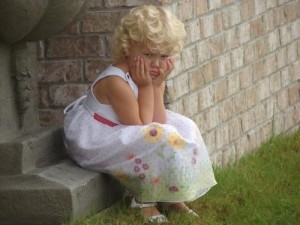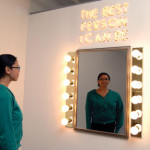 Everyone experiences loss at some point or another in their lives. But the type of abandonment issues I am discussing today, on my video, and in this week’s blog are deep and more pervasive. This abandonment tends to sprinkle its way through life filters and becomes a defining moment in a person’s life.
Everyone experiences loss at some point or another in their lives. But the type of abandonment issues I am discussing today, on my video, and in this week’s blog are deep and more pervasive. This abandonment tends to sprinkle its way through life filters and becomes a defining moment in a person’s life.
There are so many different ways a person can feel loss. Emotional loss, loss of self, no voice, loss of power, loss of control, feeling unloved, unworthy, unaccepted, misunderstood, and other UNs…and it occurs pretty frequently over our lifetimes. We are not raised by a perfect world. So it is normal to have experienced abandonment issues. If they remain unchecked and unresolved, relationships and commitments begin to suffer.
What are some abandonment issues?
In childhood they could be the negative self-talk or shaming a person hears from others. This can become a belief system with the individual who experienced such critical comments. An example is a parent who has poor self-image issues and is consistently complaining about his or her appearance or that of others. This becomes a mantra and also builds roots into a child. These are ways that we as children create beliefs and fears around what causes us to feel abandoned, i.e. unacceptable, unloved, or ignored. Another example is with an addicted parent, couples who fight or ignore each other, or a parent who rages or is absent. These are just a few life examples that create confusing negative messages for children in the environment who cannot use an adult perspective to truly understand their environment. Childlike explanations or inner self-talk contains shame due limited experience and primitive minds.
Why does this happen?
Because the brain is an organ that must make sense of life in order to survive, no matter our age. It doesn’t matter to the brain if it’s good or bad information, as long as there is information, it will travel along the mind to become data that is used for reasoning.
Children cannot reason well. The brain is not completely formed until 25 years of age. So everything we learn up until that age is extremely biased with little logic or reasoning. We are born with an emotional brain for survival and reasoning and impulse control does not begin to form until age 3. As adults, we continue using our “learned” experiences over our lifetime. These memory banks are intact and being used all day long. There is no distinction between what was learned at 3 years old or what is being learned today. It’s all important information. These emotional data banks are used to explain our world.
Why does this matter?
We could make some missteps in our relationships when we are facing challenges if we interpret things as scarier or unacceptable than they really are….not everything in childhood is ill learned, but I am addressing abandonment issues in this blog and not the parts of childhood that are good and healthy. As explanations are created aro0und why the abandonment or unacceptability occurred, defense mechanisms are built around such negative experiences for survival. As adults, using such defenses can be an over reaction or over correction. Seeing your adult situation from a fearful 8 years old eyes is not helpful! That’s why it matters.
 What can I do?
What can I do?
The defense mechanisms are subtle. They can seem normal, because all human beings are normal and dysfunctional, which is normal dysfunction! :-) Defense mechanisms you’ve been using your whole life won’t seem odd. Therefore, needing certain defense mechanisms to prevent the experience can look as simple as feeling shame.
Recovery requires self-introspection, healthy openness to hearing feedback from others you trust. Recognizing that being flawed is ok. This is where an outside source is needed. Trying to think differently on your own is difficult, because your brain is the tool that got you into this challenging position in the first place. So, you will need to borrow another person’s perspective to learn about your thought patterns.
 This will shine a bright light to issues that you aren’t consciously aware of, like abandonment pain. Everyone manages their emotional struggle with abandonment differently. Just like everyone learns differently. It’s important to find the right therapist, the best books, and have safe and healthy peers who can offer critical advice that you trust. Changing how you think about your emotional abandonment and shame is worth the hard work. You will gain more of yourself and a full life!
This will shine a bright light to issues that you aren’t consciously aware of, like abandonment pain. Everyone manages their emotional struggle with abandonment differently. Just like everyone learns differently. It’s important to find the right therapist, the best books, and have safe and healthy peers who can offer critical advice that you trust. Changing how you think about your emotional abandonment and shame is worth the hard work. You will gain more of yourself and a full life!

Our Blog